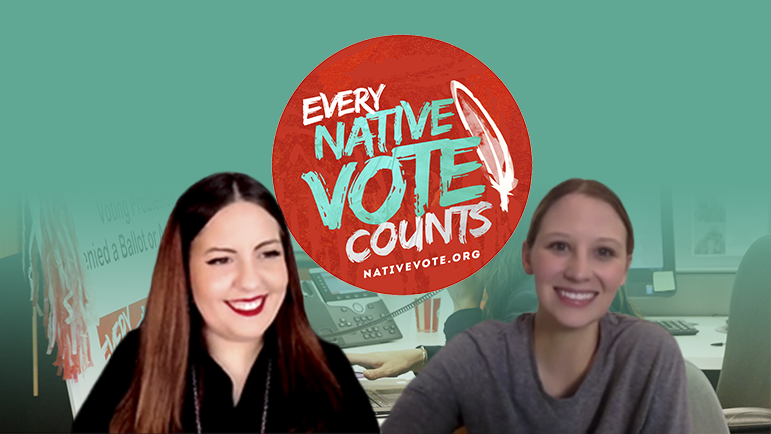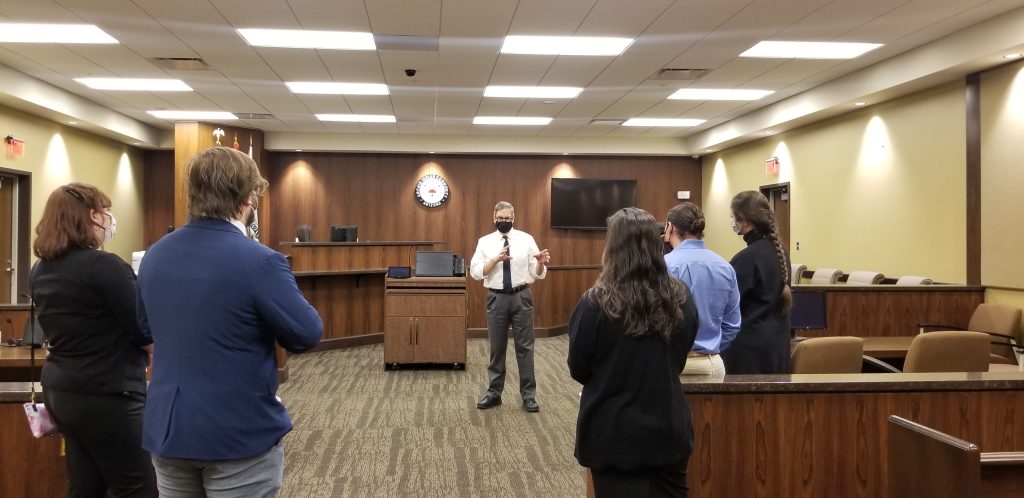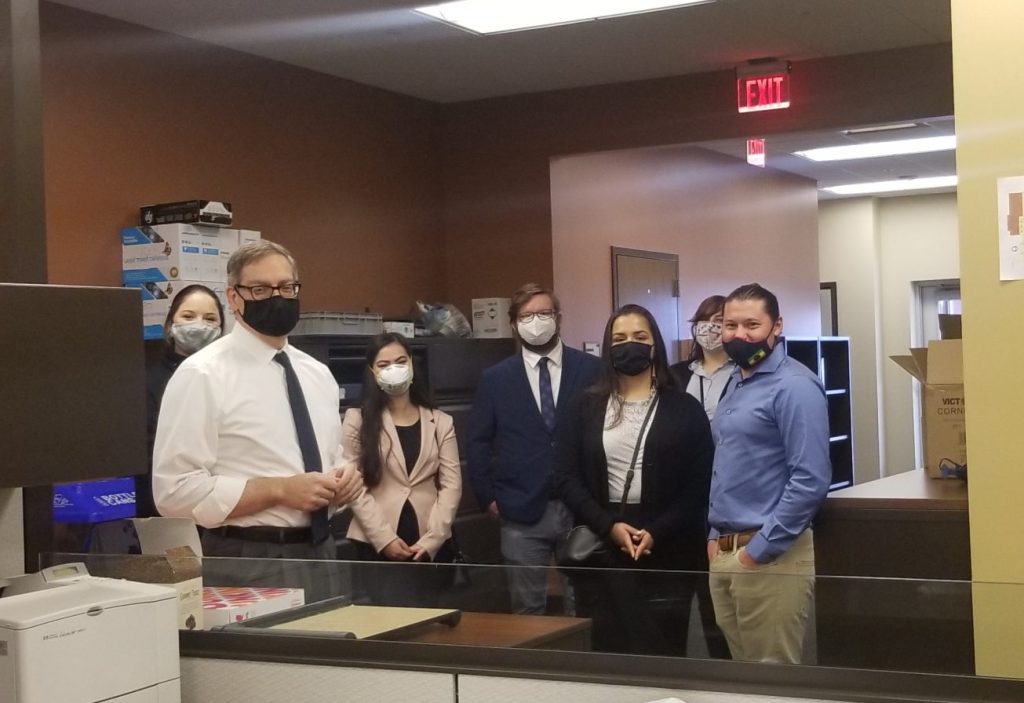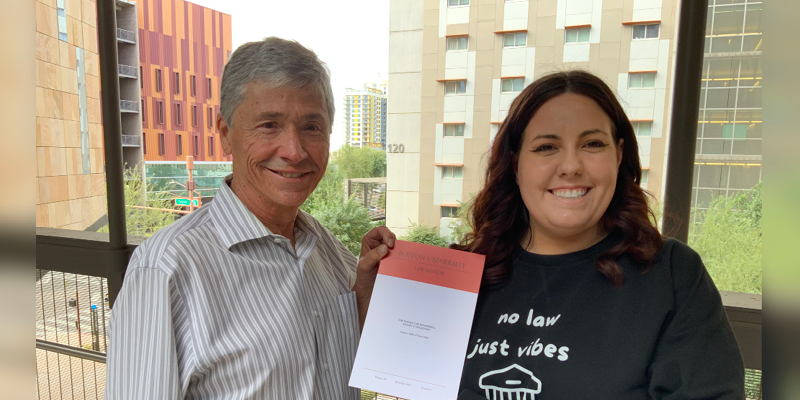
Last month, the Arizona Native Vote Communications Working Group made its return. Native Vote Fellow Blair Tarman-Toner (’21) attended the group’s meeting, and she will participate in the planning and organizing of election education and outreach materials to share in tribal communities as the group continues to meet regularly.
ASU Law’s Indian Legal Clinic has continued working on the Native Vote policy project since Arizona’s legislative session began last month. Native Vote Fellows Torey Dolan (’19) and Tarman-Toner will continue tracking bills that impact voting and will inform tribes as to how particular bills impact their tribal members. So far, the Indian Legal Clinic has identified 142 democracy-related bills in the Arizona Legislature – 72 in the Senate and 70 in the House of Representatives. Additionally, the clinic has continued its work with other voting rights organizations through the Arizona Voting Rights Defense Coalition.
The Indian Legal Clinic is preparing to present at two upcoming meetings of the Inter Tribal Council of Arizona to discuss barriers to voting in Indian Country and the upcoming elections.
Additionally, the Arizona Independent Redistricting Commission certified the state’s congressional and legislative maps. Tarman-Toner will continue tracking the county-level redistricting process. The county-level district lines must be finalized by July 1.



